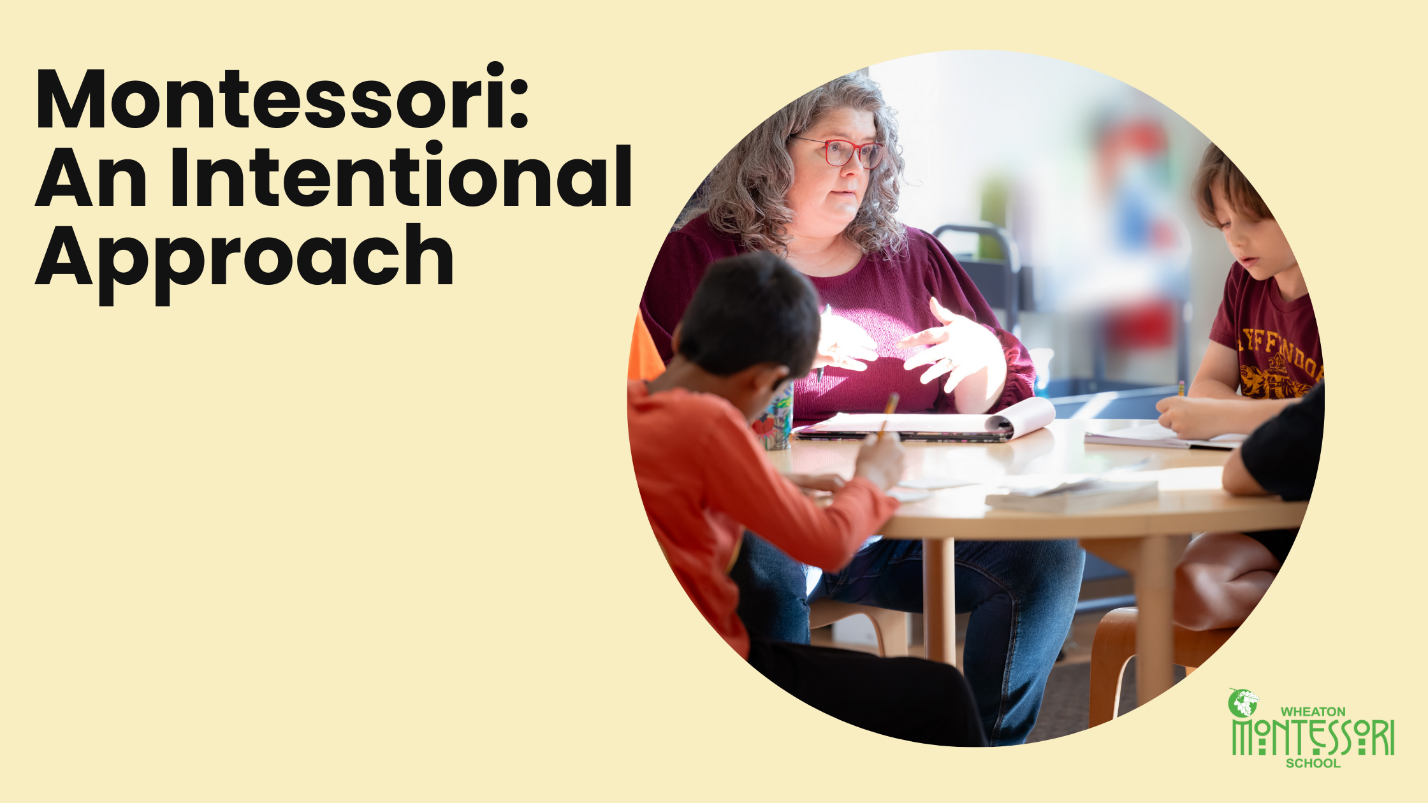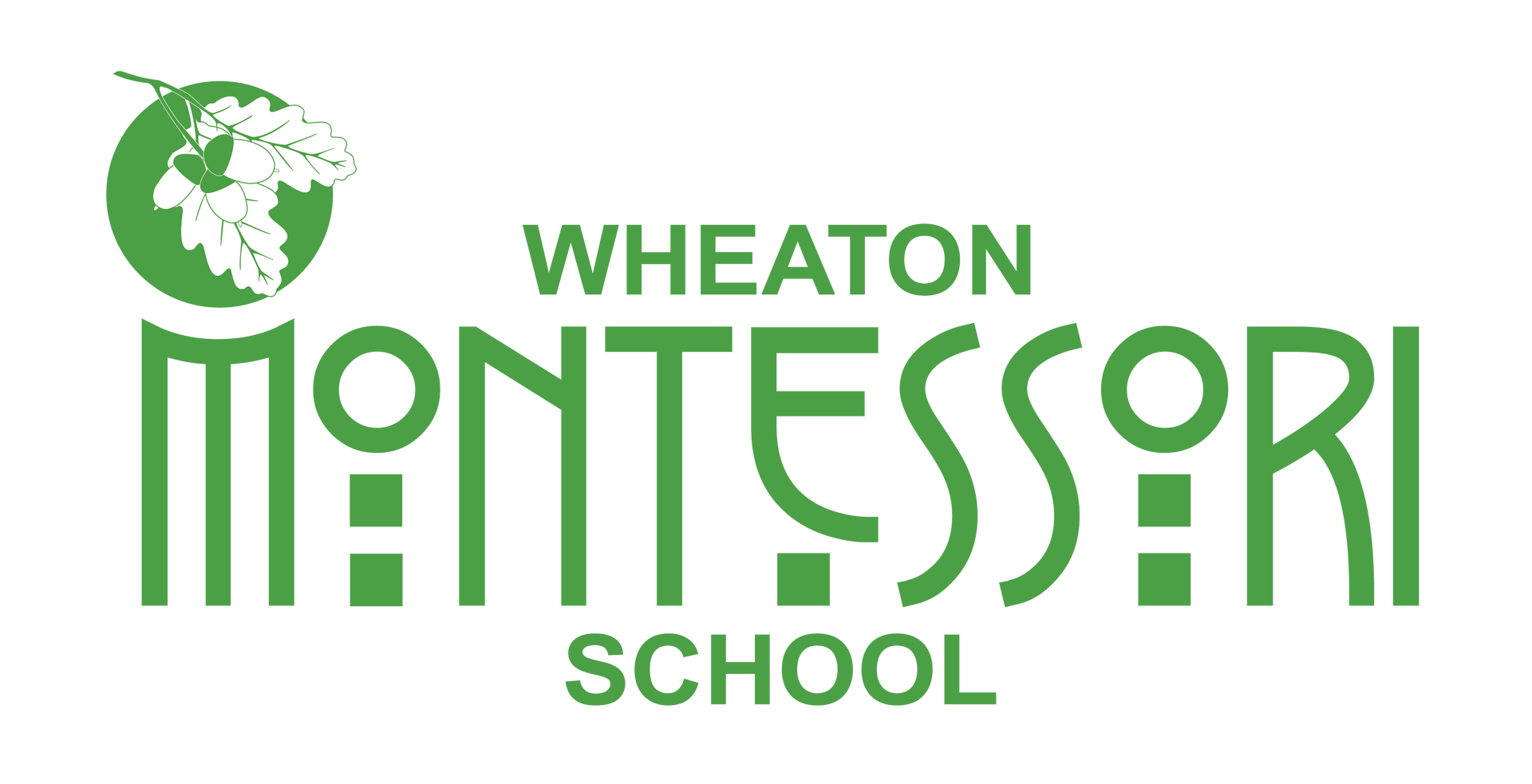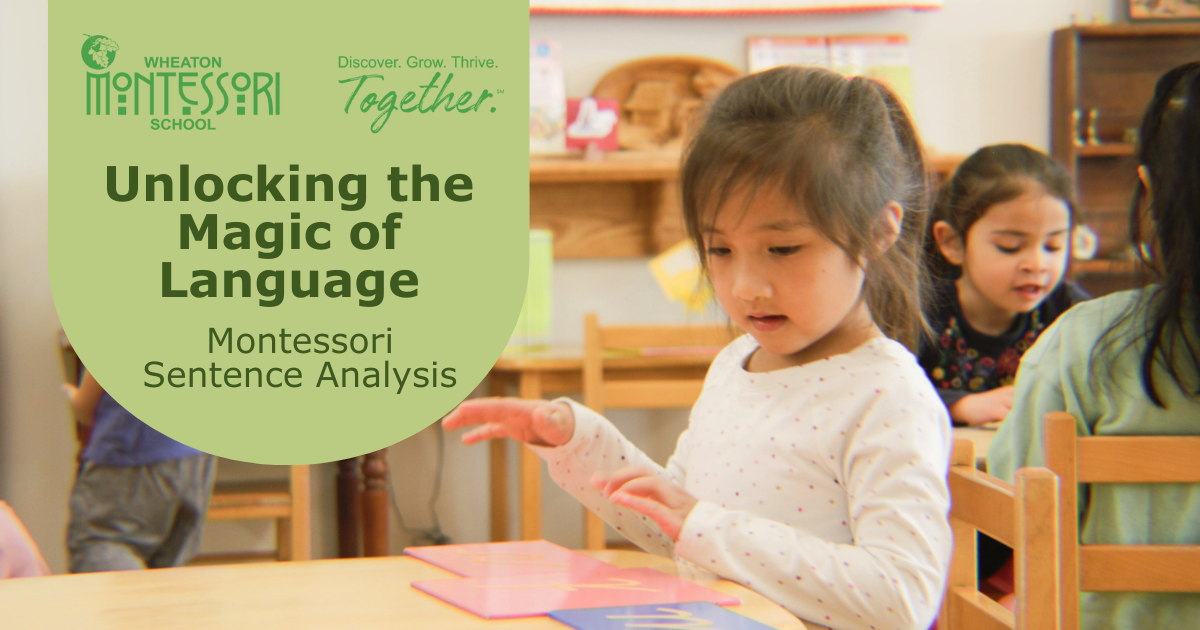
We focus on supporting children’s intellectual, emotional, social, and academic growth at Wheaton Montessori School. Dr. Maria Montessori was a scientist first and foremost who was interested in creating optimal learning environments so that young humans could reach their potential with as few adult-created obstacles as possible.
Because of this goal, we think differently about the role of teachers and the use of learning materials. One of the adults’ roles is to put children in touch with activities so children learn through doing. With this experiential approach, children use their hands, engage through movement, and even discover mistakes to correct. Adults are not the dispenser of information. They are not the provider of the right answers. Rather, we help children learn how to learn, which includes understanding themselves as learners, figuring out how to use failure as a starting place for growth, and exploring the process as much as coming to an end product.
To achieve this, the Montessori method has a very intricate approach that relies on providing children with building blocks throughout their educational journey. Montessori teachers engage in an individualized, long-term process of introducing children to a series of skills and information. Children experience ah-ha moments. We know that when children discover something for themselves, they own that information deeply. Frequently we see children feel like they are the first discoverers of a new piece of knowledge, a linguistic tool, or a mathematical trick.
For example, when children are learning the process of a compound or long multiplication, we move them through a series of activities that connect their prior knowledge of place value, patterning they have experienced for years through different Montessori materials and a color-coded system for quantities. As they work through steps that show how compound multiplication works, children often realize that they can take shortcuts rather than putting out and exchanging various colored bead bars on materials like the checkerboard. Once they start taking these “shortcuts” they are demonstrating that they have internalized the steps for multiplying multi-digit numbers. Children feel like they are discovering a fabulous secret or have invented a new mathematical method. We know that they are taking the necessary steps to abstractly compute the answer in a compound multiplication problem.
One of the gifts of our education is that children can discover so much in their own way and own their own time, regardless of the rest of the class’s schedule. Rather than rote memorization, children explore connections and make discoveries. Through multiple learning experiences, these connections create complex neural pathways that will be helpful later in life. There is a reason why a Wall Street Journal piece coined the term “Montessori Mafia” to refer to former Montessori students who have gone on to become tech titans and engaged innovators.
What about if my child only wants to work on their favorite subject? If this process of discovery across the curriculum needs additional support for any reason, our highly trained teachers provide scaffolding so that children can still build upon prior knowledge and make progress toward mastery. Wheaton Montessori teachers believe wholeheartedly in surpassing traditional benchmarks and communicating with parents when areas are being carefully watched. Sometimes extra support is needed and when this is the case, our teachers coordinate with additional professionals.
What about when well-intentioned parents want to show their children a mathematical shortcut, or highly advanced concept, or introduce some outside-of-school practice? We encourage you to hold off until your children show you. What a gift you will be giving them. They could be at the culmination of years of carefully designed preparation. They might be just about to make an important connection or realize a significant insight. And when someone is on the edge of understanding, it is a tremendous gift to allow them to have their moment! We hope that they share their “discoveries” with you especially when it aligns with your passions.
We thank you in advance for appreciating the intricacy of our approach and for connecting directly with us if you want to explore how to support your child(ren)’s learning. And of course, if you are interested in experiencing children discovering the process for themselves, we’d love to show you!
Come see how your children own their knowledge in powerful and profound ways! Current families can schedule a classroom observation by clicking on the green buttons below.
We are enrolling children who will be between 2.5 and 4 for the summer and fall of 2024 and we will hold a space for enrolled students who have not quite reached 2.5. If interested in enrolling, "Schedule a Tour" by clicking on this link or the green button located in the upper right-hand corner of our website.


